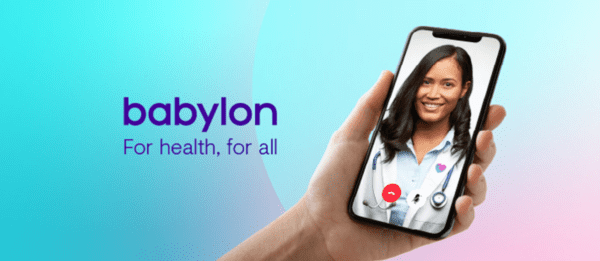|
Lyra Raises $235M | Babylon Acquires DayToDay
January 23, 2022
|
|
|

|
|
Together with
|

|
|
|
“We particularly see with the younger generation of workers, who are important to employers, that they are more willing to speak up for what they need and seek mental healthcare.”
|
|
Lyra Health CEO David Ebersman
|
|

|
|
Mental health benefits provider Lyra Health is making a habit out of starting the new year with a ton of momentum.
In January 2021, Lyra closed $187M in Series E funding and entered a partnership with ICAS World to bring its benefits overseas. This week, the company raised another $235M at a $5.58B valuation, while announcing the acquisition of ICAS World as it begins to make international expansion a top priority.
- Lyra provides a suite of in-person and virtual behavioral health benefits to over 75 large employers, offering accessible treatments for conditions such as depression and anxiety that are often stigmatized in the workplace.
- The latest raise pushes Lyra’s private funding total to $916M and ranks it among the most well-funded companies in one of the hottest corners of the digital health market. The timing follows Lyra’s September announcement of a trio of new solutions designed to address complex conditions such as alcohol use disorder and suicidality.
- ICAS World is a global employee assistance provider with a specialist network that offers “culturally responsive care” and localized support in more than 155 countries and 66 languages.
- The acquisition greatly expands Lyra’s worldwide reach, allowing it to provide mental health coaching, therapy, and medication within a single platform to over 10M global members. That’s a big jump from the 2.2M members covered by Lyra prior to the acquisition.
The Takeaway
Lyra’s employer-facing model has quickly gained traction in the US, but mental health challenges are hardly isolated to US-based employees. The WHO estimates that productivity losses due to depression and anxiety cost the global economy $1T annually. Mental healthcare is a global challenge, and the ICAS acquisition is a large step towards making Lyra a global solution.
|




|
|

|
|
Value-based care enabler Babylon is wasting no time making M&A moves in 2022, announcing patient engagement platform DayToDay as its second acquisition in as many weeks.
Just days after kicking off its US expansion by acquiring health kiosk manufacturer Higi, Babylon is bolstering its remote care capabilities with DayToDay’s digital-first programs supporting patients through major health events such as surgeries, childbirth, and the diagnosis of chronic conditions.
- DayToDay supports patients during crucial recovery periods that often extend beyond a hospital stay. It provides targeted education resources and clinical support from a personal care team, a strategy that it reports is able to keep rehospitalization rates below 4% (vs. a 15% industry average).
- Babylon works with providers, employers, and payors to offer members digital-first healthcare through the devices they already own. Its AI platform powers its Babylon 360 value-based solution as well its Babylon Cloud Services data analytics suite.
- The combination of DayToDay’s patient engagement services with Babylon’s existing offerings should enable better care delivery for both the hospital setting and the home, widening the impact that Babylon can have across the care continuum.
The Takeaway
Babylon’s goal is to “make high-quality healthcare accessible and affordable for every person on Earth,” a mission that’s as big as the company’s appetite for acquisitions that could help make it happen. The Higi acquisition was a strong entry point into US healthcare, and DayToDay’s patient engagement services strengthen Babylon’s value-based care portfolio as it establishes itself internationally.
|




|
|
Explore Nuance’s Personalized Patient Experience
Personalized digital experiences drive better outcomes for patients and providers. Explore how Nuance is using AI automation to advance the quality of service across the care journey here.
|
|
- Telemedicine Follow-Ups: A new study published in the Journal of General Internal Medicine found that Black patients discharged from the University of Pennsylvania Health System saw primary care follow-up completion rates rise from 52% to 70% between January and June 2020 as telehealth adoption climbed. By contrast, white patients’ completion rates remained stable at ~68%, suggesting that telemedicine might be able to address racial health disparities by improving access to care.
- Wheel Series C: White labeled virtual care platform Wheel closed a $150M Series C round (total funding now $216M) to help more companies introduce virtual care patients without having to build a solution from the ground up. Wheel’s platform and nationwide clinician network allows companies to establish a virtual care service under their own brand, bypassing the “15 months and $15M” that it can take to create a similar service from scratch.
- Quest Acquires Pack Health: Quest Diagnostics announced the acquisition of patient-engagement company Pack Health to strengthen its ability to support health plans transitioning to value-based care. Pack Health tracks medication adherence, diet/exercise, and other lifestyle factors to improve chronic condition management, services that will help Quest connect diagnostic insights to actions that generate greater value.
- Health Tech Optimism: A survey of over 9k frontline workers published by Microsoft found that 50% of those in non-management positions do not feel valued as employees, but that 63% are excited about job opportunities that new technology is bringing to healthcare. The findings speak to the heightened levels of burnout faced across the industry, but highlights how new tools related to tasks such as team scheduling and appointment management provide hope for addressing the issue.
- Big Health Funding: Digital therapeutics company Big Health raised $75M in Series C funding to expedite the launch of six new digital therapeutics by 2024. The upcoming solutions will add to Big Health’s current CBT app portfolio that includes Daylight (anxiety) and Sleepio (insomnia), which are now accessible to all Scottish citizens after Scotland became the first country in the world to make digital therapeutics for anxiety and insomnia available nationally last October.
- Digital MSK Study: A BMC Musculoskeletal Disorders study investigated the feasibility of a remote digital care program (DCP) for 342 participants with acute musculoskeletal pain. The DCP consisted of 8 to 12 weeks of therapist-guided exercise supported by SWORD Health motion tracking devices, with participants reporting a 64% pain reduction on average (3 points lower than in-person care), as well as improvements in secondary outcomes such as a 63% reduction in surgery intent and 40% less fear-avoidance beliefs.
- Blue Shield + Ginger: Blue Shield of California recently expanded its Wellvolution benefits program to include text-based behavioral health coaching and teletherapy provided by Ginger, the on-demand mental healthcare arm of Headspace Health. Ginger’s platform is now available to over 26,000 Wellvolution members, building off an earlier Blue Shield partnership that gave members access to Headspace’s meditation app and highlighting the synergies enabled by the Headspace / Ginger merger.
- Virtual Care Reduces ER Visits: New research from Cigna found that patients who saw virtual providers had 19% fewer visits to the ER, and that virtual visits reduced duplication of care by up to 16%. The study adds to a quickly growing body of research with similar results, and comes at a time when eliminating these types of inefficiencies is crucial for health systems strained by the pandemic.
- AI3C: A pretty impressive list of US healthcare and life science organizations announced the formation of Artificial Intelligence Industry Innovation Coalition (AI3C), created with the goal of transforming healthcare through responsible AI adoption. The AI3C and its members (including: Microsoft, Cleveland Clinic, Duke Health, Intermountain, Novant, Brookings Institution, and more) will develop tools and programs to drive AI development and adoption.
- Telerobotic Ultrasound Clinics: A University of Saskatchewan team demonstrated how telerobotic ultrasound might improve access to care in remote regions. The team created telerobotic ultrasound clinics in three indigenous communities using commercially-available technology, and performed 87 exams that were remotely-controlled by sonographers and read by remote radiologists. The radiologists rated 72% of the exams as sufficient for diagnosis, while 95% of the patients were willing to receive future telerobotic ultrasound exams (mainly due to reduced travel).
- IBM Offloads Watson Health: Private equity firm Francisco Partners is acquiring most of IBM’s Watson Health division in a transaction rumored to be worth around $1B, creating a new standalone healthcare entity and giving both companies (IBM and the former Watson Health) a much-needed fresh start. IBM now has another $1B that it can use towards its prioritized hybrid cloud and AI platform strategy, and the new Watson Health company can return to growth mode after several years of declining corporate support.
|
|
|
|
|